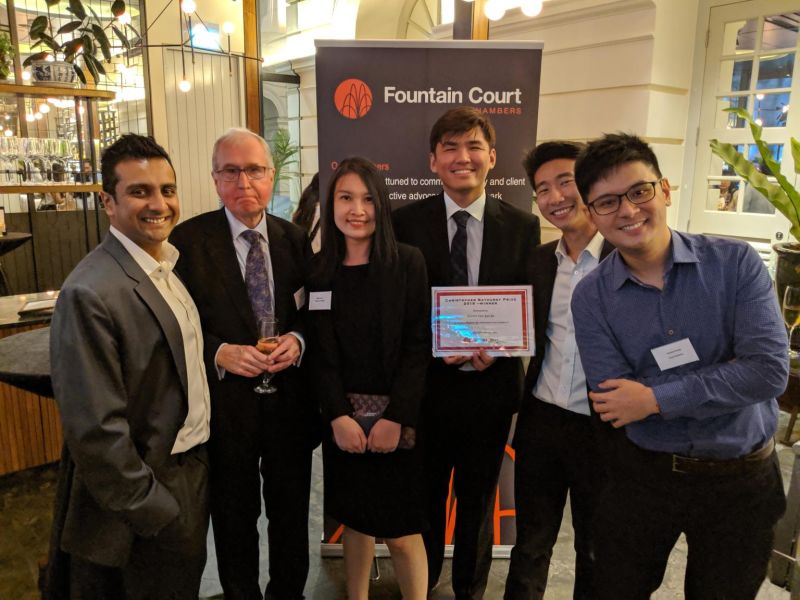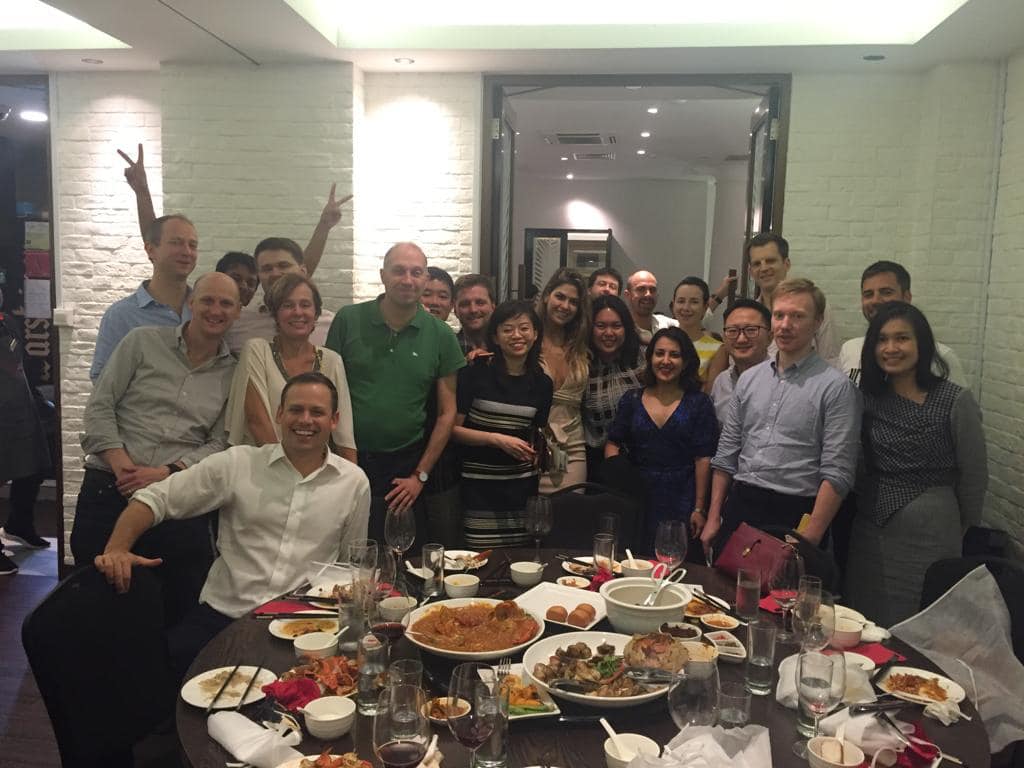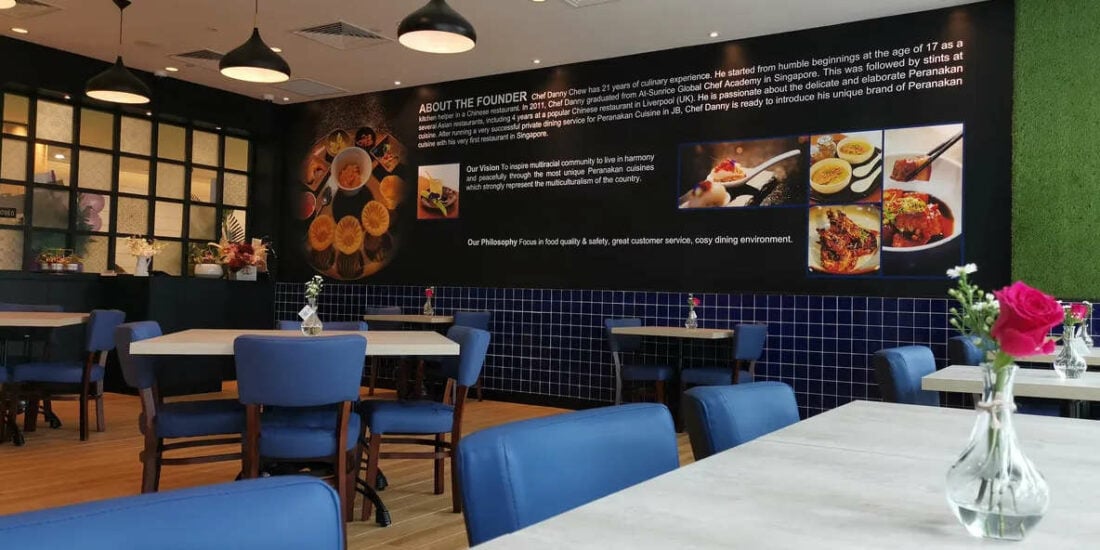
The Road to Specialising in an Area of Practice – Nobly Running the Race
Choosing Your Area of Specialisation
Happenstance did not bring me here.
Corporate insolvency was an area of law that piqued my curiosity when I studied company law in my second year of law school. In my third year, to develop this nascent interest, I chose both credit and security as well as corporate insolvency as elective modules. This was followed by an internship where I actually got to work on a matter involving a scheme of arrangement and the firm offered me pupillage shortly after. In fact, that was the only internship that I did during my undergraduate years (wisely or foolishly), because I figured that I should just enjoy the semester breaks.
I personally chose to focus on insolvency law because it frequently involves complex legal issues which intersect with commercial and practical considerations. Insolvency involves the multifaceted confluence of contractual rights, property rights and public policy. There is also crossover and overlap with banking and company law. Each case often requires us to draw on a few different areas of law; it could be shipping today and cryptocurrency tomorrow. Insolvency as a legal practice also offers a good mix of contentious and transactional work. My work involves preserving value for the stakeholders in a distressed situation and this brings a lot of meaning to what I do. Beyond a career or a profession, this is truly a calling.
When gaining experience at university, it is important to think about which area of law interests you the most. Internships are a good way to acquaint yourself with the quotidian aspects of practice. This will then influence your decision whether to specialise or not. Even after you graduate, the process of learning and growth must continue till you get where you want to get.
Building Your Skills and Profile as a Junior Lawyer
Whether you are a shipping litigator or a tax lawyer, nothing is more important than honing your craft. You will need to become the best at what you do as a specialist and that may even take years to achieve. Play the long game and persevere. When thinking about specialising, be sure that you have the baseline skills and experience to succeed in this particular area of the law. It is important to start building your blocks of technical knowledge when you are relatively young and your charge-out rate is lower. This is especially since studies have shown that our professional decline starts earlier than almost anyone thinks.1Arthur C. Brookes, Your Professional Decline Is Coming (much) Sooner Than You Think, https://www.theatlantic.com/magazine/archive/2019/07/work-peak-professional-decline/590650/
As a young lawyer, it is important to build trust and to inspire confidence vis-à-vis your seniors. It is only then will they entrust you with chances to argue hearings as lead counsel. For me, I pursued opportunities to build my oral advocacy skills as early on as possible in my career. I was given an opportunity to argue my first contested hearing before a High Court Judge when I was in my fourth year of practice. This involved successfully defending an application for leave to commence legal proceedings against a company undergoing judicial management.
It is also never too early to distinguish oneself as a junior associate. For instance, I entered the Christopher Bathurst Essay Prize competition in its debut year and became the first ever winner. This culminated in an attachment at Fountain Court Chambers which gave me access to the experience and skills of one of London’s leading commercial barristers’ chambers specialising in banking and finance.

2019 Christopher Bathurst prize ceremony with other prize winners
Becoming the Best at What You Do
By focusing your outbound marketing on one area of expertise, you will have the opportunity to build your own personal brand much faster as compared to a generalist.
As a specialist, clients value your expertise and they expect you to know the law at your fingertips. That level of familiarity with the relevant law and commercial practice and being able to identify potential pitfalls only comes with experience.
For example, I recently was instructed at 6pm to file a judicial management application before a winding-up hearing the following morning. Because this was something that I was familiar with, I managed to prepare and file the application at 3am.
Having an accreditation in a particular area of law is useful to potential clients and it helps them identify the specialist practitioner that they wish to engage. To this end, the Singapore Academy Law has launched accreditation schemes for various specialised areas of the law, the most recent being Data and the Digital Economy.
In 2018, I embarked on the Global Insolvency Practice Course conducted by INSOL International and became one of the first three Singapore-qualified practitioners to be bestowed the prestigious fellowship from INSOL International. This broadened my knowledge of global insolvency regimes and helped me understand better the opportunities, challenges and solutions offered by different regimes in other jurisdictions.

Dinner with GIPC course mates
It is crucial that you eat, sleep, and breathe within the practice area that you have decided to embark on. Literally too. I have pulled a few all-nighters in office due to work exigencies, with my dinner comprising of convenience store food and instant noodles. There is no substitute for hard work and it becomes very obvious to the clients when you try to cut corners.
Being the best at what you do and building a strong reputation around that specialty can make obtaining new clients easier. By focusing your outbound marketing on one area of expertise, you will have the opportunity to build your own personal brand much faster as compared to a generalist. Some of the clients that I got to know during the course of an insolvency matter have referred work involving other practice areas. In other words, the right specialisation does not reduce your opportunities, but rather it can help to attract the right opportunities for you.
However, as you probably know, it takes real effort and conviction to build a specialised practice. You really need to have the experience, the passion, the wherewithal, and the dynamism to become successful in specialising.
Pivoting Beyond Your Core Practice Area
Specialisation does have its downsides. One of these is tunnel vision which can limit your ability to see solutions outside your area of focus. Whereas a broad understanding of the law gives you the bird’s eye view to connect the dots when cases span multiple practice areas or industries. This means that it is not just possible but actually useful, to traverse beyond the confines of your specialisation. In fact, exposure to other areas of law will bring you perspectives that confront, elevate, deviate and cross-pollinate. It is like how England manager Gareth Southgate understood that echo chambers are inherently self-limiting; hence he brought in voices from beyond football to advise him.2https://www.bbc.com/news/world-57698821 These include a cycling coach, a college commander at the Sandhurst Military Academy and a tech entrepreneur.
One memorable non-insolvency matter would be when I acted for the Trustee of the Jurong Country Club notes in respect of the early buyback offer from JTC.3https://www.businesstimes.com.sg/real-estate/jtc-makes-early-buyback-offer-for-jurong-country-club-notes This arose due to Jurong Country Club’s land being acquired for the development of the Singapore-Kuala Lumpur high-speed-rail terminus. In this case my knowledge gained from having acted for bond trustees in a distressed situation was transferable.
A number of insolvent companies fraud-riddled; this is where having criminal law knowledge comes in useful. Having built up my related expertise in criminal law, I was given an opportunity to act for a mainboard-listed company in respect of Commercial Affairs Department investigations into potential market manipulation offences under the Securities and Futures Act.
What Keeps Me Going in Practice – Unrivalled, Unmatched and Unparalleled
To some, it may be the accolades or the financial rewards that keeps them going. To see things in perspective, being on just another “40-under-40” list can only get one so far. Rather, the next 40 years for me is about embracing a growth mindset4https://hbr.org/2016/01/what-having-a-growth-mindset-actually-means Individuals who believe their talents can be developed through hard work, good strategies, and input from others tend to achieve more than those who believe their talents are innate gifts. This is because they worry less about looking smart and they put more energy into learning. and continuing to stay hungry and stay humble. I choose to be “long term greedy”5https://www.forbes.com/sites/investor/2012/03/01/the-benefits-of-being-long-term-greedy/?sh=1104792f689d a term coined by Marcus Goldman, the founder of Goldman Sachs, which means not necessarily chasing the highest remuneration but finding a place that allows me to build my practice and to sink roots.
First, for me, the intellectual stimulation of law as a career is unrivalled. Restructuring and insolvency is an area of law that has seen many developments, including adaptations from the US Bankruptcy Code. One of my career highlights has been working on the first “pre-packaged” scheme of arrangement in Singapore. This also means the willingness to push the legal envelope and to bring arguments where no men dare to tread.
Second, the cross-border opportunities involved in legal practice for me have been unmatched. One of my most memorable matters was a judicial management that spanned over a decade. This was in relation to global shipping conglomerate involving, amongst other jurisdictions, Singapore, the UAE, India, Belgium, the United States of America, England, Australia and Malaysia. In fact, this matter culminated in a noteworthy US Chapter 15 decision.
Third and most importantly, it is the relationships that I have forged over the course of my career that bring unparalleled meaning to what I do. Adversity undeniably brings people closer. I became friends with some of the clients whose companies I helped to restructure. Last year, I attended a few weddings of my former associates and clients who still invited me notwithstanding the pared-down guest lists due to the pandemic. The overarching theme of this article is undoubtedly about how we embark on a journey to a certain destination i.e. legal specialisation. However at the end of the day, it could be said that the company matters even more. While “resume virtues” are important, so are “eulogy virtues”6https://www.newyorker.com/culture/cultural-comment/david-brookss-search-for-meaning which are what you would want people to talk about at your funeral.
Beneath the veneer of specialisation, I am just an ordinary person blessed with opportunities to work with extraordinary people. And I am incredibly proud of what we have achieved together.
Endnotes
| ↑1 | Arthur C. Brookes, Your Professional Decline Is Coming (much) Sooner Than You Think, https://www.theatlantic.com/magazine/archive/2019/07/work-peak-professional-decline/590650/ |
|---|---|
| ↑2 | https://www.bbc.com/news/world-57698821 These include a cycling coach, a college commander at the Sandhurst Military Academy and a tech entrepreneur. |
| ↑3 | https://www.businesstimes.com.sg/real-estate/jtc-makes-early-buyback-offer-for-jurong-country-club-notes |
| ↑4 | https://hbr.org/2016/01/what-having-a-growth-mindset-actually-means Individuals who believe their talents can be developed through hard work, good strategies, and input from others tend to achieve more than those who believe their talents are innate gifts. This is because they worry less about looking smart and they put more energy into learning. |
| ↑5 | https://www.forbes.com/sites/investor/2012/03/01/the-benefits-of-being-long-term-greedy/?sh=1104792f689d |
| ↑6 | https://www.newyorker.com/culture/cultural-comment/david-brookss-search-for-meaning |






